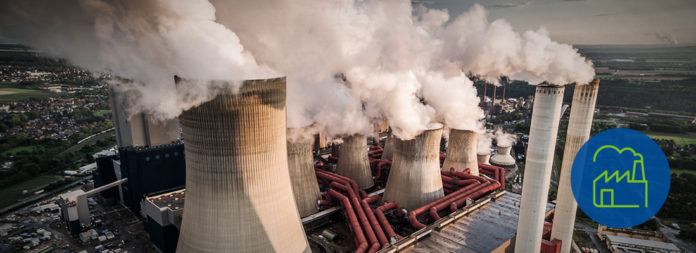By Omole Ibukun
The conversation about fuel price has to factor in the whole picture from the dire energy needs of the poor working-class Nigerian masses to individual health, environmental, and climate damage. While we regard our oil wealth in Nigeria as a blessing, we have had to go on strike and protest to keep fuel price and energy cost as low as it is right now even though it’s still unaffordable. At the same time, the masses have had to deal with the environmental damage of a ‘blessing’ we have not been able to taste from.
Unlike the COP26 climate talks where the conversations were done above the heads and the realities of the masses and world leaders flew in with jets whose fuel were doing damage to the atmosphere, climate issues actually have real life effects on the masses. According to Forbes, 118 Private Jets Took world leaders To COP26 Climate Summit burning over 1,000 tons of CO2.
We’re in a world where not just subsidy removal is a half-baked solution for the masses and for the climate. We’re in a world where not just the building of privatised and monopolised refineries like the Dangote Lekki refinery undergoing construction is a half-baked solution for the masses and for the climate. The only incentive of a Private Enterprise is profit, not the masses’ welfare, nor the climate. We’re in a world where building publicly-owned oil refineries have become an important solution not just because it is publicly owned or democratically planned and managed by the working people, but because it becomes a basis for the people to kickstart a transition to a more environmentally-friendly energy sector. We’re in a world where the whole of the petroleum sector has to be replaced by a more environmentally-friendly sector.
The fact that oil is mined in Nigeria alone accounts for cases of cancer, leukemia, birth defects and some exposures to radioactive elements that are released during mining. This is asides the fact that it has contributed to the lack of access to clean water or clean air in the southern part of the country. Oil spills contaminate the land making it unsuitable for farming. What an acid rain will do to farmlands is not far-fetched. So not only is Nigeria’s economy not diversified from oil, the oil sector is also being used to destroy other sectors like the Agricultural sector. These are working people problems; Problems that the rich can escape by building mansions in the cleanest cities of the world, while destroying the environment here.
Yes, it might be difficult to explain the dangers of greenhouse gases or carbon dioxide waste released into the atmosphere during petroleum extraction to a very poor and uneducated population that was made like that by multi-nationals mining on our lands and under-developing our country. What’s simple is that everyone here can feel that the sun is getting hotter just as their water is getting dirtier, and their air is polluted with soot. Climate Change is not an “Oyinbo” problem. It’s a problem caused by Capitalism and affecting all of the masses.
What’s interesting about the International Monetary Fund and the suggestion of this fuel subsidy removal is that it sees no fault in these multinationals polluting the country to mine oil. Its main interest is, in fact, to protect the billionaires of those multinationals and control the economy of the underdeveloped world for them to keep exploiting.
Shell is presently being dragged to the UK Supreme court over the pollution of the Niger Delta. Gas flaring has increased cancer cases in the Niger Delta. Oils spills have made it impossible to farm or fish in Bayelsa. The mangrove forest is being lost, the fish population getting reduced drastically, billions of dollars budgeted for cleanup only get looted by politicians. The only resistance seen was by militant groups like Movement for the Emancipation of the Niger Delta (MEND) whose leaders like Dokubo and Tompolo now own oil fields after their ceasefire in 2014. While the militants were activists, they did nothing beyond intra and inter-group violence and kidnapping and killing of expatriates in exchange for money to be spent mostly by leaders of those top-down gangs. The land is no longer green, and the white part of our flag signifying peace has been replaced by the blood of those who died in these violence and those massacred by the state whether at Odi Massacre or at Lekki Massacre.
The need for a popular and democratic environmental justice campaign has become more pressing in the Niger Delta. Something that can go further than the great intellectual exploits of activists like Ken Saro Wiwa and lead the people out to protest against the environmental destruction caused by the petroleum industry on one hand while fighting the increase in fuel price on the other hand. The demand must go further towards public ownership, democratic planning and control of the sector. This is the kind of campaign supported by petroleum workers unions and climate/environmental activists that can push back the subsidy removal plan of the Federal Government for 2022. This will be a vote of no-confidence in a rotten ruling class seeking to replace itself by 2023’s general elections.
Only a publicly owned refinery managed democratically by the working people can start the phasing out of oil for other clean and renewable sources of energy like the sun. This is the long-term solution. But in the short-term, it is only sensible that Nigerians are protected from a more austere economy with the subsidy increased to ensure an even lower price of fuel, while such long-term solution is in the works. It is already clear the giving transport allowance to Nigeria (as ignorantly suggested by the government) costs even more than keeping the subsidy. Except that the Subsidy removal is only being done because the Federal Government are presently in need of IMF loans, what’s in the interest of the masses is to not remove the subsidy while working on public refineries.
If we don’t fight and win on this basis, the subsidy will be removed and the FG will take more loans from the IMF. Loans to be looted before they have to leave office by 2023, and a meager part of that loan will be used to buy votes in 2023 to keep themselves in place over us. This is the reason to revolt now!
Omole Ibukun writes from Abuja, and can be reached on 09060277591.






